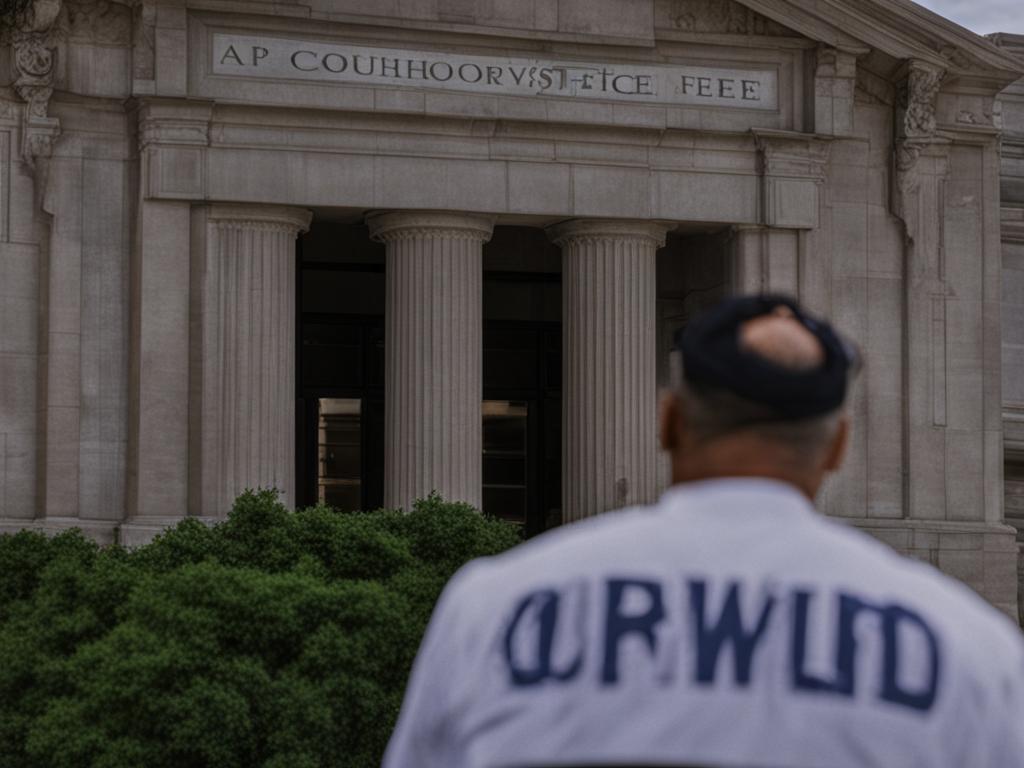Understanding If a Dismissed Divorce Case Can Be Reopened
Have you ever wondered if a dismissed divorce case can be reopened? In most states, the answer is no. However, there are exceptional circumstances under which a dismissed divorce case can potentially be reopened. It’s important to understand the specific requirements in your state and consult with an attorney to explore your options. In this article, we’ll delve into the possibilities and limitations of reopening a dismissed divorce case.
Key Takeaways:
- Reopening a dismissed divorce case is possible in certain exceptional circumstances.
- Specific requirements vary by jurisdiction, so consulting with an attorney is crucial.
- Mistakes, negligence, changes in circumstances, new evidence, fraud, accident, or perjury can be grounds for reopening.
- Each state imposes a time limit for filing a motion to reopen a dismissed divorce case.
- Consider the financial costs and potential risks associated with reopening the case before making a decision.
California Code of Civil Procedure 473(b)
In the state of California, parties have the opportunity to reopen a dismissed divorce case through a provision known as California Code of Civil Procedure 473(b). This provision allows for the reversal of a dismissed divorce case if it was initially dismissed due to a mistake, inadvertence, surprise, or excusable neglect by the party or their attorney.
To reopen a dismissed divorce case in California, a motion must be filed with the court. This motion must be accompanied by a declaration that explains the specific mistake or neglect that led to the dismissal. It is crucial to note that there are time limitations for filing this motion, and it is vital to comply with these limitations to increase the chances of successfully reopening the case.
Motion Requirements and Time Limitations
When filing a motion to reopen a dismissed divorce case in California, it is essential to ensure that the motion meets all the necessary requirements. This includes providing a detailed explanation of the mistake or neglect that occurred and led to the dismissal. The court will carefully review the motion and accompanying declaration to determine if reopening the case is appropriate.
Additionally, it is crucial to be aware of the time limitations for filing the motion. In California, the motion must be filed within six months of the dismissal date. However, if the dismissal notice was personally served and the court made property-related orders, the motion must be filed within 90 days. Failing to comply with these time limitations can result in the court refusing to reopen the case, necessitating the filing of a new divorce petition.
Considering the Financial Implications
Before deciding to proceed with reopening a dismissed divorce case in California, it is essential to consider the potential financial implications. Reopening a case can incur additional fees and expenses, including attorney fees, court filing fees, and other related costs. It is crucial to weigh these financial considerations against the likelihood of success in reopening the case to make an informed decision.
Furthermore, reopening a dismissed divorce case may lead to modifications of existing orders or decisions, potentially impacting the division of assets, spousal support, child custody, and other important aspects of the divorce settlement. Understanding these potential consequences is essential for evaluating the necessity and desirability of reopening a dismissed divorce case in California.
Mistakes and Neglect
During the course of a divorce case, various mistakes and instances of neglect can occur, leading to the dismissal of the case. These mistakes and neglect can range from simple oversight to more significant errors that affect the outcome of the case. When a divorce case is dismissed due to mistakes or neglect, there may be a possibility of reopening the case instead of starting the entire process from scratch.
One common mistake that can lead to the dismissal of a divorce case is the failure to file a crucial document within the specified timeframe. This can happen due to oversight or a misunderstanding of the required documentation. Additionally, missing court hearings due to a lack of notice or being unable to attend trial due to illness can also result in the dismissal of the case. These instances of neglect can be unintentional and may warrant the reopening of the case without the need for filing a new divorce petition.
However, it is important to note that not all mistakes and neglect will qualify for reopening a dismissed divorce case. The court will examine the circumstances surrounding the dismissal and determine whether it was a result of a mistake, inadvertence, surprise, or excusable neglect. If the court concludes that the dismissal was due to one of these factors, the case can be reopened, saving time and potentially reducing the financial burden of starting the process all over again. Consulting with an experienced attorney specializing in family law can provide guidance on whether the mistakes or neglect in your case meet the criteria for reopening.

Reopening a dismissed divorce case can be a complex process with specific requirements and time limitations. It is crucial to understand the rules and procedures in your jurisdiction before proceeding. Additionally, carefully weighing the potential costs and benefits of reopening the case is essential. While reopening the case may provide an opportunity to correct mistakes or address new evidence, it could also involve additional fees and efforts. Consulting with a knowledgeable attorney can help you navigate the process and make informed decisions about your legal options.
Time Limitations to Reopen a Divorce Case
When a divorce case is dismissed, it is important to be aware of the time limitations for reopening the case. These limitations vary depending on the jurisdiction and must be strictly adhered to in order to have the case reopened. Failure to comply with the time limitations may result in the court refusing to reopen the case, necessitating the filing of a new divorce petition.
In California, for example, the motion to reopen a dismissed divorce case must be filed within six months of the dismissal date. However, there are exceptions to this general rule. If the dismissal notice was personally served and the court made property-related orders, the motion must be filed within 90 days. It is crucial to consult with an attorney to understand the specific time limitations in your state to ensure that you meet the necessary deadlines.
Reopening a dismissed divorce case requires careful attention to procedural requirements and the timely filing of motions. It is important to have a clear understanding of the time limitations and comply with them in order to have the best chance of reopening the case and continuing the divorce proceedings.
| State | Time Limitations to Reopen a Divorce Case |
|---|---|
| California | Within 6 months of dismissal date or within 90 days if dismissal notice was personally served and court made property-related orders |
| New York | Within one year of the dismissal date |
| Texas | Within 30 days of the dismissal date |
| Florida | Within 30 days of the dismissal date |
Table: Time Limitations to Reopen a Divorce Case in Different States
It is crucial to consult with an attorney to understand the specific time limitations in your state as they can vary significantly. By staying informed and meeting the necessary deadlines, you can increase the likelihood of successfully reopening a dismissed divorce case and continuing the legal proceedings.
Considerations
When considering the reopening of a dismissed divorce case, there are several important factors to take into account. Understanding these considerations can help you navigate the process and make informed decisions.
Evaluating the Reasons for Dismissal
Before proceeding with reopening a dismissed divorce case, it is crucial to evaluate the reasons for the dismissal. If the case was dismissed due to a party’s repeated failures to attend hearings, ignoring court warnings, or general non-participation, it may be difficult to successfully reopen the case. In such situations, it might be necessary to file a new divorce petition and start the process afresh. Consulting with an attorney can provide insights into the viability of reopening the case based on the specific circumstances.
Weighing the Costs and Benefits
Reopening a dismissed divorce case can come with financial costs, such as attorney fees and court expenses. It is essential to weigh these costs against the potential benefits and chances of success. Assessing the likelihood of achieving a favorable outcome by reopening the case can help you determine if it is worth pursuing. Exploring alternative options, such as mediation or negotiation, may also be advisable, depending on the specific circumstances of your case.
Reopening a dismissed divorce case is not a guaranteed solution. It requires careful consideration of the reasons for dismissal, the potential costs involved, and the chances of achieving a favorable outcome.
Consulting with an Attorney
Seeking the guidance of an experienced family law attorney is crucial when considering reopening a dismissed divorce case. An attorney can assess the specific circumstances of your case, provide advice on the applicable laws and procedures, and help you navigate the legal process. They can also advocate for your rights and interests, increasing the chances of a successful reopening of the case.
By taking these considerations into account and seeking professional legal advice, you can make informed decisions regarding the possibility of reopening a dismissed divorce case.
Understanding the Legal Options
When facing a dismissed divorce case, it is crucial to understand the available legal options. Consulting with an experienced attorney specializing in family law can provide insights into the applicable laws in your state and explore potential remedies for reopening the case. Reopening a divorce case requires meeting specific legal standards, and it is essential to have a clear understanding of these requirements before making any decisions.
In the process of reopening a closed divorce case, it is important to consider the specific circumstances that led to the dismissal. Was it due to a mistake or neglect by either party or their attorneys? Or was it a result of non-participation or repeated failure to attend hearings? These factors will impact the chances of successfully reopening the case.
It’s also important to assess the financial implications of reopening a dismissed divorce case. Additional costs may be incurred, including attorney fees, court filing fees, and potential modification of existing orders or decisions. It is crucial to weigh these potential costs against the likelihood of success in reopening the case.
Ultimately, the decision to reopen a dismissed divorce case lies with the court, and each jurisdiction may have its own rules and procedures. By consulting with an attorney and understanding the legal options available, individuals can make informed decisions about how to proceed with their dismissed divorce case.

Time Limit to Reopen a Divorce Case
When a divorce case is dismissed, there is a time limit within which you can seek to reopen it. This time limit varies depending on the jurisdiction. It is important to be aware of the specific time limitations in your state to ensure the success of your motion to reopen the case. Failure to adhere to the time limit may result in the court rejecting the motion.
Reopening a dismissed divorce case requires filing a motion with the court. The motion must be accompanied by a declaration explaining the reason for the dismissal and the grounds for reopening the case. It is crucial to consult with an attorney to understand the specific requirements and procedures for reopening a dismissed divorce case in your jurisdiction.
Understanding and complying with the time limit is essential to successfully reopening a dismissed divorce case. It is recommended to seek legal advice and guidance from an experienced attorney who specializes in family law to navigate the complexities of the process and increase your chances of success.

Financial Considerations
Reopening a dismissed divorce case can come with its fair share of financial costs. Before deciding whether to pursue reopening the case, it is essential to consider the potential expenses involved and weigh them against the likelihood of success. It’s crucial to be aware of the potential financial risks associated with reopening the case, as well as the potential impact on existing orders or decisions.
When reopening a dismissed divorce case, there may be various expenses to consider, such as attorney fees, court filing fees, and the costs associated with gathering new evidence or testimony. These costs can quickly add up, depending on the complexity of the case and the amount of work required to present a compelling argument for reopening the case. It’s essential to consult with an experienced family law attorney who can provide guidance on the potential financial implications and develop a strategy that aligns with your circumstances.
“Reopening a dismissed divorce case can be a costly endeavor, both in terms of monetary expenses and time commitment. It is crucial to carefully evaluate the financial implications and weigh them against the chances of success before proceeding.”
In addition to direct financial costs, reopening a dismissed divorce case can also result in the need for additional hearings, negotiations, or even a full trial. This can lead to further expenses related to court appearances, expert witnesses, and other litigation-related costs. It’s important to consider not only the upfront costs but also the potential long-term financial implications of reopening the case.
Ultimately, the decision to reopen a dismissed divorce case should be based on a careful evaluation of the potential financial costs and benefits. It is essential to consult with a knowledgeable attorney who can assess the specifics of your case, provide guidance on the likelihood of success, and help you make an informed decision that aligns with your goals and financial circumstances.

Conclusion
Reopening a dismissed divorce case can be a complex and challenging process. While it is possible under certain exceptional circumstances, such as vital mistakes, changes in circumstances, or the discovery of new evidence, the decision ultimately lies with the court. Each jurisdiction has its own rules and procedures for reopening a case, making it crucial to consult with an attorney to understand the specific requirements in your state.
It is important to be aware of the time limitations for filing a motion to reopen a dismissed divorce case. Failure to comply with these time limits can result in the court refusing to reopen the case, necessitating the filing of a new divorce petition.
Reopening a dismissed divorce case may come with financial costs, and the potential risks should be carefully weighed against the chances of success. Consulting with an experienced attorney specializing in family law can provide valuable insights into the legal options available and help navigate the complexities of the process.
FAQ
Can a dismissed divorce case be reopened?
In most states, a dismissed divorce case cannot be reopened. However, there are exceptional circumstances under which a dismissed divorce case can potentially be reopened.
What are the exceptional circumstances for reopening a dismissed divorce case?
Exceptional circumstances for reopening a dismissed divorce case include vital mistakes or negligence by the attorney, misinterpretation or misapplication of the law, significant changes in circumstances, the discovery of new evidence, or instances of fraud, accident, or perjury.
What is California Code of Civil Procedure 473(b)?
California Code of Civil Procedure 473(b) allows parties to reopen a dismissed divorce case if it was dismissed due to a mistake, inadvertence, surprise, or excusable neglect by the party or their attorney.
How can I reopen a dismissed divorce case under California Code of Civil Procedure 473(b)?
To reopen the case, a motion must be filed with the court, accompanied by a declaration explaining the mistake or neglect that led to the dismissal. It is important to note that there are time limitations for filing the motion, and compliance with these limitations is essential to the success of reopening the case.
What are the time limitations to file a motion to reopen a dismissed divorce case in California?
In California, the motion must be filed within six months of the dismissal date. If the dismissal notice was personally served and the court made property-related orders, the motion must be filed within 90 days. Failure to comply with these time limitations will result in the court refusing to reopen the case, and filing a new divorce petition will be necessary.
What happens if the dismissal of a divorce case was due to neglect or non-participation?
If the case was dismissed due to a party’s repeated failure to attend hearings, ignore court warnings, or general non-participation, it is likely that the case will need to be refiled from scratch, incurring additional fees and starting the process anew.
Should I consult with an attorney regarding reopening a dismissed divorce case?
Yes, consulting with an experienced attorney specializing in family law is crucial to understanding the specific requirements and increasing the chances of success in reopening a dismissed divorce case.
What are the financial costs associated with reopening a dismissed divorce case?
Reopening a dismissed divorce case may incur financial costs, including additional efforts, litigation, and potential modification of existing orders or decisions. It is important to weigh the potential costs against the chances of success before deciding to pursue reopening the case.
What are the key considerations when deciding to reopen a dismissed divorce case?
When deciding to reopen a dismissed divorce case, it is crucial to consider other options, understand the potential risks and benefits, and consult with an attorney to explore legal remedies and understand the specific requirements in your state.

